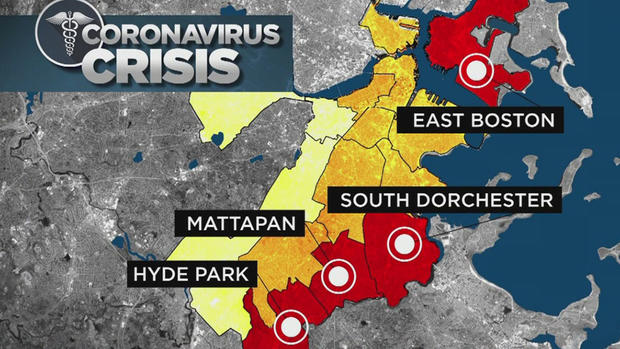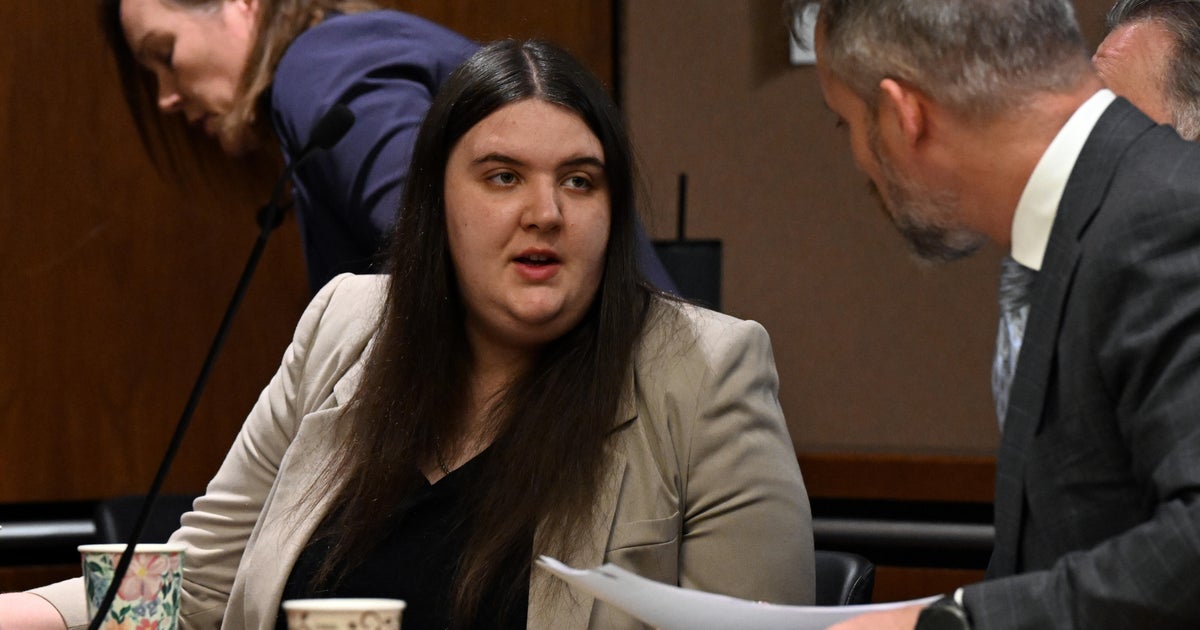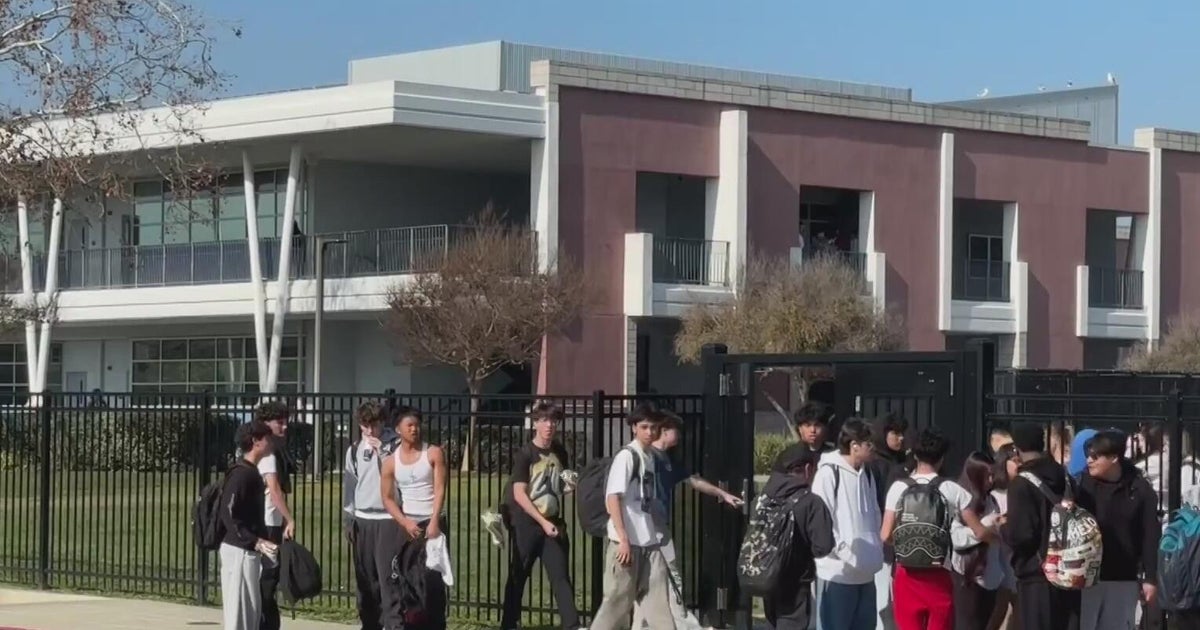Coronavirus Affecting Massachusetts Working Class Communities More Than Others
BOSTON (CBS) -- New numbers out of Chelsea reveal the city is in the grip of the coronavirus. Officials have confirmed at least eight deaths and 356 cases. Census figures show the city of over 40,000 people is at least 65% Latino.
"Data that's coming to light in the last 24 hours, and the impact that we're seeing in communities like Chelsea, that have been absolutely devastated with a rate of infection potentially 10 times that of other parts of Boston," said Massachusetts Congressman Joe Kennedy of new data suggesting Chelsea may have the highest per capita rate of COVID-19 in the state.
Kennedy is now calling on the Department of Public Health to track information by race and release it.
"If we are not collecting and analyzing and distributing this data, we're not going to be able to craft an adequate immediate response," Kennedy said Wednesday morning. "And we're not going to learn the lessons we need to learn to make sure this doesn't happen again."
By Wednesday afternoon, Health and Human Services Secretary Marylou Sudders confirmed that state officials will make racial data public. She added that up until this point in the pandemic, collecting this type of demographic data from private labs and hospitals has proved to be a challenge, as it was often incomplete.
"The Department of Public Health is working with these organizations to improve the data reporting by race and ethnicity so we can all understand where and on whom the burden of disease is falling," Sudders said during the governor's daily conference.
City officials in Boston said they're also dealing with the same self-reporting problem and are working to get more detailed information. The latest Boston Public Health map breaks down the number of cases in the hardest hit neighborhoods: densely populated working class communities, with large groups of minority residents, who often can't afford to stay home.
"I think it really heralds back things like institutional racism, systemic racism and bias that has always influenced the health of communities at risk," said Dr. Allison Bryant, vice chair of quality, equity and safety at Massachusetts General Hospital.
Dr. Bryant says pre-existing conditions are also contributing factors.
"Things like asthma, diabetes, hypertension and obesity, those contribute as maybe proximate causes to why people are doing so poorly in the setting of the COVID epidemic," Bryant said.








